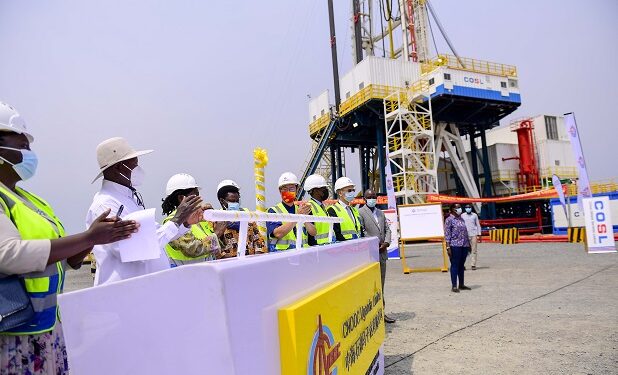Uganda’s journey toward economic transformation is being redefined through a bold commitment to value addition in its minerals and oil and gas sectors. For decades, the country exported raw minerals, forfeiting billions in potential earnings and thousands of jobs. Recognizing this missed opportunity, President Museveni and the NRM leadership instituted a ban on the export of unprocessed minerals—a strategic pivot that has catalyzed industrial investment and positioned Uganda to reap the full benefits of its natural wealth.
Today, Uganda boasts ten gold refineries, three steel-making factories processing iron ore, four cement factories utilizing limestone, and a growing number of facilities for tin smelting, ceramics, copper, cobalt, and rare earth elements. These developments are not just industrial milestones—they are engines of job creation, foreign exchange generation, and regional development. The government’s mineral exploration efforts have uncovered new deposits of gold in Buhweju, Mubende, Namayingo, Bugiri, Amudat, and Zombo; uranium in Kabarole, Buhweju, and Sembabule; rare earth elements in Bugweri; graphite in Kitgum; base metals in Namisindwa and Amuru; wolfram in Kabale; and bentonite in Hoima. These discoveries are laying the groundwork for a diversified mineral economy.
To ensure these resources translate into tangible benefits, the NRM has pledged to invest in the quantification of explored minerals, giving investors clarity and confidence. Further exploration will continue to unlock Uganda’s full mineral potential. The Uganda National Mining Company is being capitalized to spearhead value addition in partnership with the private sector, while bankable projects are being developed to attract concessional financing. Formalizing artisanal mining through biometric registration and licensing is also underway, ensuring safety, accountability, and inclusion. A key priority remains the redevelopment of Kilembe Mines, once a cornerstone of Uganda’s copper industry, now poised for revival.
Parallel to the mineral revolution is Uganda’s strategic approach to oil and gas. When oil was discovered, the NRM resisted the temptation of quick exploitation. Instead, it invested in building local scientific capacity and a robust institutional framework. The Petroleum Authority of Uganda (PAU), Uganda National Oil Company (UNOC), and Uganda Petroleum Institute Kigumba (UPIK) were established to ensure Ugandans lead the sector’s development. Several laws and policies were enacted to safeguard national interests, reflecting a long-term vision rather than short-term gain.
Now, Uganda stands on the brink of its first oil production, with annual revenues projected at USD 2 billion for the next 25 years. This income has been ringfenced for infrastructure development, not consumption—a principle Museveni has emphasized repeatedly. The East African Crude Oil Pipeline (EACOP), stretching 1,443 kilometers to the Tanzanian coast, is a critical conduit for this transformation. Even before the first barrel is pumped, nearly 48,000 Ugandans have already secured jobs in the sector, a testament to the NRM’s local content policy.
The next frontier is downstream investment—refining, processing, and petrochemical manufacturing. A 60,000-barrel-per-day refinery is underway, alongside a pipeline for refined products, strategic storage terminals, and the Kabalega Petrochemical Industrial Park. These projects are expected to create a new economy worth USD 5 billion annually, integrating Uganda into global value chains and reducing dependence on imported petroleum products. UNOC is being further capitalized to lead these ventures, while plans are in motion to construct a natural gas pipeline from Tanzania to Uganda, unlocking cleaner energy options and industrial feedstock.
This value addition strategy is not just about economics—it’s about sovereignty, jobs, and inclusive growth. As Minister Ruth Nankabirwa noted at the 2025 Mineral Wealth Conference, “Uganda’s mineral and oil wealth must be processed here, by Ugandans, for Ugandans.” The NRM’s manifesto reflects this ethos, promising continued exploration, investment in infrastructure, and partnerships that prioritize Ugandan interests. With a clear roadmap and political will, Uganda is turning its natural endowments into engines of transformation—where minerals and oil are not just commodities, but catalysts for prosperity.
Story by YKM Online News Network
Do you have a story in your community or an opinion to share with us: Email us at editorial@watchdoguganda.com














